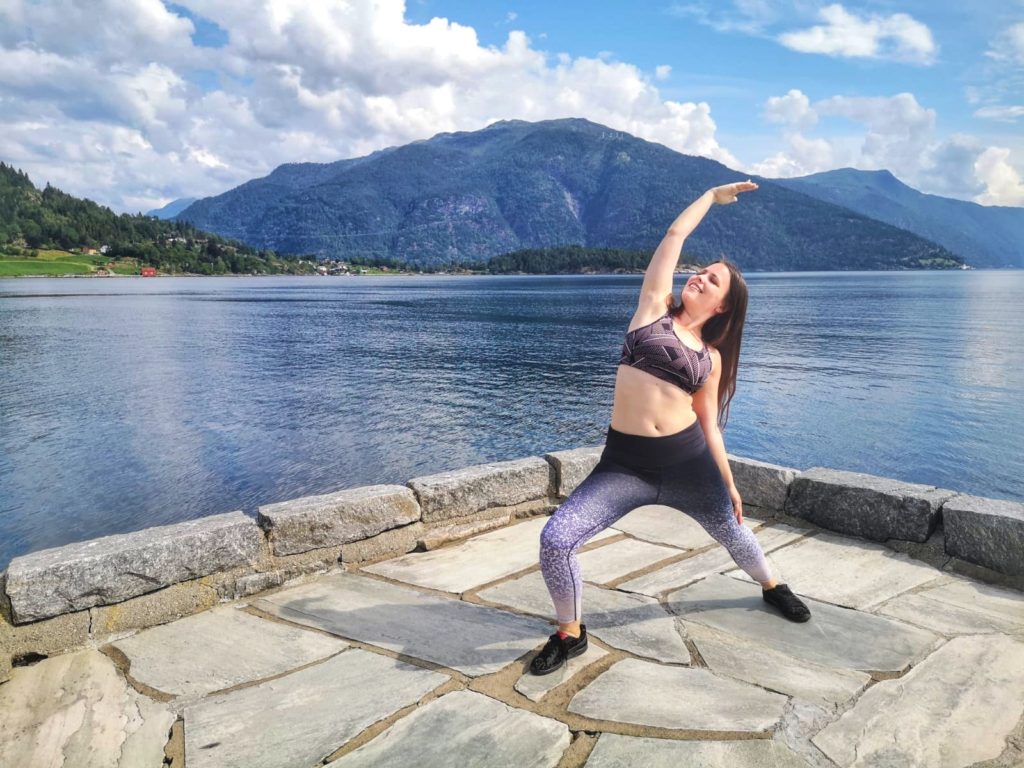Many of us, with the best of intentions, set new year resolutions. Providing us with a guiding force for how we’re going to make this year our year. And most of us make it to around mid-January before those resolutions get binned.
You’ll have likely heard a lot about goal setting and why it’s important. And you’ve probably heard of the SMART acronym – making goals specific, measurable, attainable, relevant and time-bound. This style of goal setting is commonly used in a variety of settings. It’s one of the first things they taught us when I was studying personal training.
So what’s the plan this year? Let’s take something that so many people start January with – I want to lose weight. Ok, great – there’s your general goal. But how are you going to know when you’ve achieved it? You’ve lost weight when that first pound comes off, so did you succeed? I need to get more specific – perhaps, I want to lose half a stone in weight by July 2021. Great, we’ve gotten a bit more specific in what the goals is and how it can be measured, it’s attainable and it’s time-bound. Now I need to perhaps figure out how I’m going to achieve that – how many calories am I going to deficit each day in order to reach this? What healthier substitutes can I make for what I’m currently eating, what can I cut down on? Am I going to only measure weight, or am I going to measure my waist-line as well? Do I need to meal plan or modify my portion sizes? There’s lots of ways to break down the lofty goal of losing weight into measurable chunks.
Perhaps your lofty goal is to perform your first solo dance performance in 2021. How would you break down how you need to get there?

SMART goals are great, but the thing I dislike about them is that they lack passion and desire. And if it were as easy as just breaking things down into manageable and achievable chunks, we’d all be excelling in everything we want to achieve. I like SMART goals, but what happens when you don’t meet your goal? Are you a failure? Or did you just set your sights too high for what you can currently achieve? Were you unrealistic with the amount of time you have to achieve your goal, or the amount of time needed to achieve it? I think this is especially relevant for those who are working on dance or fitness in their spare time, who don’t do this for a living or have endless hours of time to make things happen. There’s a reason that people want to practice and don’t. I like to add to the acronym and make goals SMARTER – Evaluate and Readjust – so that if I don’t reach a goal I can reflect on why I didn’t make it and adapt the goals as necessary. Maybe the goal wasn’t specific enough, or life got in the way and I hadn’t accounted for that.
In my opinion, SMART goals lack desire, and I believe that desire is a driving factor for success. Don’t lose sight of why you’re doing the smaller things to reach the big thing. Something I have heard a lot, thanks to Simon Sinek, is to start with the WHY. I started with the why when I considered what I wanted to achieve with my business. I start with the why when I write my copy for my classes. I start with the why when I develop a new programme. And I think this is an ideal strategy to use when working towards something. You need a lofty goal from which to hang all the steps that are going to get you there, so you can keep referring back to the why when you’re thinking about jacking it all in.
Another thing I like to do is to write it down. If I write something down I’m more likely to do it – that’s why I have To Do Lists. It might help you to write your goals somewhere you can see them regularly so you’re reminded of them. Perhaps you set a reminder on your phone, or schedule something in on Google Calendar. A couple of years ago I had a goal of working out for 5 hours a week and doing some kind of dance practice for 5 hours a week (I know, not very specific but definitely measurable) – I had a meter that I drew on my mirror in dry wipe marker that I could fill up every time I completed some time on each goal. For that year, the point was that I was just showing up, rather than working on anything in particular.
SMART goals also don’t have an in-built plan B if things start going wrong – another reason to consider adding Evaluate and Readjust to the acronym. It’s great to have a plan B in mind for your reaching your lofty goal, especially if you need to rely on others to get you there. Consider what your alternative method might be if this one doesn’t work out. What will you do to get you back on track when things get in the way (I anticipate my house move in 2021 getting in the way of some of my goals, so I need to make a contingency for how that’s going to impact on the process)? What barriers might prevent you from reaching your goals, and how will you adapt or work around them? What will you do if collaborative partners fall through or can’t deliver? How will you overcome your fears or your ego when it comes to reaching those goals? When will you ask for help?
Another option is to set up accountability partners to make sure we don’t lose sight of our goals and to encourage us to keep moving in their direction instead of giving up. I offer one to one coaching with my clients to help them reach their goals and have someone there to hold them accountable. One of my coaching clients in 2020 wanted to create a choreography for an online show she had signed up for in 6 weeks’ time. She had never finished a choreography from beginning to end and she found it difficult to create time for practice. We discussed the possible barriers to her achieving this goal and how we would overcome them. We evaluated how much time does she really have available in her life to enable her to deliver on this goal (and let me give you some advice, it’s usually less time than you think you have). And of course I provided guidance through the process in the form of feedback, tips and advice, and suggestions for where to go next and what to practice. But what she actually found most beneficial was having me hold her accountable. She was proud of the fact that she had not only made a performable choreography in six weeks, but that she enjoyed both the process and the outcome as well. But she was honest – she probably wouldn’t have done it if she didn’t have a weekly session with me to prepare something for, and a weekly accountability check in from me in between sessions. Having someone to hold you accountable is a really great way of getting things done, and it’s as easy as, ‘Hey Alexis, have you done that thing you said you were going to do this week?’
Another approach to getting shit done is to ask yourself, ‘Did I do my best today’? This is another form of reflection on how your efforts are getting you closer towards your goal. I like to approach this in a non-judgemental way. Did I fritter my time away scrolling Instagram, making cups of tea, cleaning the entire house and working on stuff that isn’t a priority today (absolutely something I have never done in my life….)? And if I did, what can I change tomorrow to get me closer to my goal? I know all about procrastination, believe me. My house was never cleaner than when I was writing my PhD. Accept that you may have wasted a day and not done your best and move on to what you can change so you do your best work tomorrow.
An approach to goal setting that I recently read about is PACT – Purposeful, Actionable, Continuous and Trackable. Purposeful – meaningful to your long-term purpose in life, not only relevant to right now, and learning the difference between what are tasks and what are goals. Actionable – things that you can take action on today rather than overplanning for tomorrow. Continuous – simple and repeatable actions, with a focus on continuous improvement rather than reaching the end goal (this feels especially relevant for dancers where continuous improvement is essential for reaching lofty goals). And Trackable – did I do the thing, or not? Did I eat within my calorie deficit today? Did I create a minute of choreography? Did I do my ten minutes of dance practice that I decided was achievable with the time I have available in my life? Did I go to Pilates class? Yes or no? This makes your commitment to your goal so easy to track.
Ultimately you want to dream big and figure out the manageable, trackable and intentional steps to help you get there. These are your mini-goals which help you reach your long term goals. Make sure that you really do feel passionate about wanting to achieve them, otherwise you’ll reach mid-January and ditch them. If you need someone to keep you accountable, find a trusted family member, friend or hire a coach to keep you on track. Turn your actions into habits and you are sure to achieve your goals!
I wish you the best of luck in your adventure through life in 2021 – let’s hope it’s a better year for all of us!

